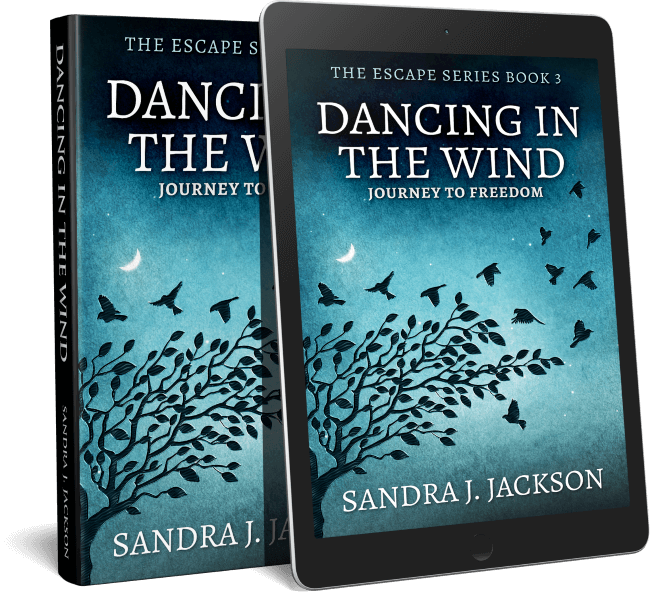Kingmaker And The Scribe
Kingmaker And The Scribe - book excerpt
Chapter 1
“I am Ouroboros,” the serpent told them in the time between. “The beginning is the end, as the end is once again the beginning.”
Starship Conquistador
c. 2500 A.D.
“Are you ready, girl?” Wata asks as a chime sounds over the ship’s intercom.
Not a girl anymore, having turned twenty-seven, but this is what he has always called me. I am weary to the very marrow of my bones, but I rise and nod that I am ready. My time has been long, longer than Earth’s rough mountains that have at last slumped into the sea. Now that Wata and I have arrived on this new planet, unfouled by the excesses of humanity, will my journey finally be over? Can I at last rest, my weary body prepared and tucked into the soil of this new planet so that my soul can finally be free to wander the afterlife?
The door slides open to reveal King Gha, surrounded on three sides by his guards. He is grinning.
“Wata, it is the first day in our new land. You too, Rulie, are you happy we have finally landed?”
I bow, which is what is expected of me.
Wata grasps the king’s hand in both of his. “May the heaven that has been our transport entrench us into our — your — new land,” he says and bends to lightly touch his lips to the top of our new leader’s hand.
King Gha looks back at his guards standing stoically. He leans close to Wata and whispers, “Yes, of course, my land with your fine expertise. Our former leader,” this he says in even a softer whisper, “whose name has been lost to the solar winds, was not up to the task, would you not say.”
“Not up to the task,” my friend agrees in the same conspiratorial whisper.
A second alert sounds, this time two short chirps.
“Come, my people are waiting,” this new world’s king says. He links arms with Wata and together they start down the richly adorned corridor with its walls of bright pulsing colors. The three guards fall in behind the two men. I am last in the menagerie that will be the first humans to touch feet on the ground of our new world, already engineered to have the proper composition of air, light, and vegetation.
Wata, as he is named in this life, has always been the crafter of kings, the advisor to both tyrants and presidents. Perhaps, that was the task God assigned his soul but with this last — and his booted foot against the old king’s ass in the airlock — his corruption is complete. Just like the memories of our past lives, coming to full fruition. I will record this as I have all, I pray, for the last time.
PART I
Chapter Two
“My fang brings death or the divine,” the serpent told them in the time between. “Only providence will reveal which one.”
Egypt
c. 2500 B.C.E.
“Audax, it is time to gather the grain,” Mother tells me. It is a duty often performed by boys such as me. After a breakfast of dates and curdled sheep’s milk, I pick up the scythe and make my way to the field. Cutting the stalks of grain is a task that I have done many times, and today I do it by rote, watching a herd of goats munch their way along the edge as I swing my sharp tool.
“Watch out!” a voice commands.
Startled, I spin to see the flattened head of the asp just before it strikes my naked leg. The moment stretches and the sun glints on a strange purple cast inside the hooded head. The snake’s eyes are like black wells and I feel their glare tug at my center. This happens slowly, so slowly that I believe I will have an opportunity to flee or perhaps just step to one side. Then time regains its rhythm and a single fang pierces the skin of my calf, pumping a drop or maybe a bowl of poison into my flesh, the fang retracts and the cobra slides past, a second fang spraying death into the dry desert air.
Before the pain can register and I begin the slide into the afterlife, there is another shout and a speared the serpent, pinning it to the ground. Weakly, I turn my head to see a boy, a little older than myself. He is the one who shouted the warning and impaled the creature. Do I know him? He is not familiar like one of my friends in the village but perhaps a visitor I have seen before, coming with his father to trade camels or goods at market.
Then the pain begins, and I writhe like the snake, still alive under the blade of the spear.
“I will help you,” the stranger tells me. “Here, grasp my hand.”
He wraps an arm under my shoulder and lifts. I stand with effort, the edges of my vision glittering like the night stars.
“Hurry,” he tells me. I sink into darkness and know no more.
Chapter Three
For an eternity I swim in the stream between life and death. There is the comfort of my mother’s voice, and a strange scent as someone places a cool compress against the painful wound. There are moments when I awake begging for water or relief from the sensations that course through my body.
A strange dream intrudes on this passage. The snake, caped in the violet of the gods, speaks to me of times and places I do not understand. I am the witness, he tells me. I struggle to awake from the nightmare, but the snake’s eyes pin me to the vision.
Finally, I return from the underworld. Is this the afterlife? There is the scent of dust and smoke from the fire. Sheep shuffle somewhere outside. I open my eyes and see the ceiling of my family’s hut overhead.
“Audax,” my mother shouts. “Look, Audax has awakened.”
I struggle to rise and find that my father, two brothers, and sister have come to see me. Outside the door of the house, dawn colors the sky. Not the afterlife but real life, the one I had woken to just this morning. Or is it? I remember the snake and look down at the cloth covering my leg. The bite happened at midday, now it is a new day. How long have I been asleep? Or dead?
“Am I dead?” I try to say, but my voice is a croak like the frogs in the rushes by the great river.
“You are not dead, thank the gods,” my mother prays and lifts a bowl so I can drink.
“Hapu’s son, Ibiaw, saved you,” my father explains. “He was exploring while Hapu met with officials and saw the asp strike. He helped you back and advised how to prepare the ointment to pull out the poison. Otherwise, you would be…”
He cannot continue, and my mother is wiping at eyes that I see now are red from weeping or sleeplessness.
“How long…?” I start to ask.
“Two days,” my little sister finishes. “We thought you were dead.”
My sister is one who always speaks bluntly. I wonder if her future husband will tolerate or praise that quality?
“He is not dead. Audax is alive,” she chants as she bolts out of the hut to tell her friends.
My mother helps me rise, and I clean myself of the stink of the sickbed. My body is trembling by the time this is done, and I gratefully drink water and eat the meal she has prepared.
“Audax, come outside,” my father instructs a while later.
My legs still feel weak, and where the cobra bit me throbs, but I am glad to get outside.
“My son, this is Ibiaw. He is the one who saved your life.”
I step forward to grasp his forearm. “Thank you,” I tell him.
Ibiaw is taller than me, his skin bronzed by the sun. His smile is open, and he wears the linen tunic common to the professional elite. I, on the other hand, wear the clothes of the son of the brewer that I am.
“I am glad you are back with the living,” he tells me and there is the smile again.
I sigh deeply. “The gods are generous to lead you to me. I am in service to you.”
He waves a hand dismissively. “I am but a mortal who happened on you and,” this he says with a twinkle in his eye, “your snake friend.”
My father laughs and Ibiaw’s father, who has arrived as we talk, laughs as well. I simply feel faint, recalling the moment of the strike.
“Come,” Father tells them. My wife and I have just finished brewing beer. It is cool from resting in a jar in the river. Join us and we will sample it.”
Later, while the fathers are engrossed in conversation, I slip away. My leg throbs, and there is still the otherworldly feeling that the venom had brought to my mind. I sit on a flat stone and watch as women wash clothes in the river. Soon Ibiaw approaches and sits beside me. He rubs a red rash on his leg.
I tell him, “The poison still affects me, and sounds seem too loud. Here it is quiet except for…,” I wave at the women standing knee-deep in the shallows, “…the swish of cloth.”
“Yes, it is peaceful here. My family lives near the palace of the pharaoh, and the air is always filled with sound. And smells,” he adds, pinching his nose.
“How did you and your father come to our village?” I ask.
“He is an architect and designs the canals that channel the water.”
“And you came to learn the profession from him?”
“Perhaps,” Ibiaw comments. “Or perhaps I will design great pyramids to house the pharaohs and their consorts in their afterlife.”
“Ah, that would be more interesting than becoming a brewer.”
Ibiaw looks out at the women who are now wringing out the clothes and placing them in a basket. There is a thoughtful look on his face, and I sense he is not actually seeing them.
“Can you write and count?” he asks, turning to face me.
“Yes, they are skills a brewmaster must learn. Why do you ask?”
“Father and I need someone to help us. You are just a boy now, but in a few years, your skills could be useful.”
“Yes,” I tell him, although I am not sure how I could be useful. On the way back to our fathers, I pull myself taller, hoping this will speed me on the way to manhood.
















Praesent id libero id metus varius consectetur ac eget diam. Nulla felis nunc, consequat laoreet lacus id.